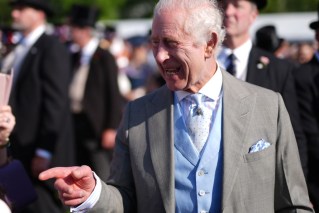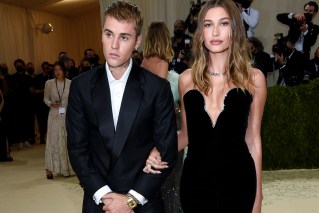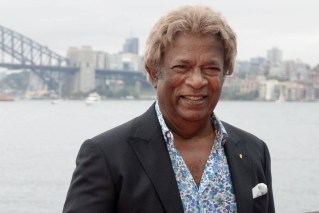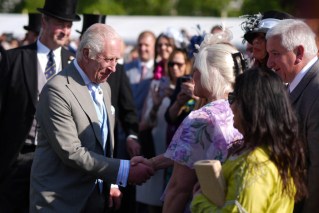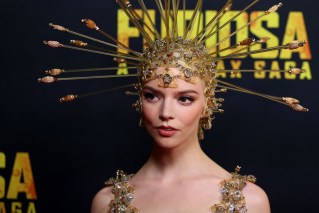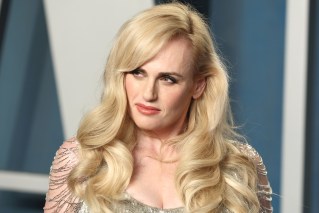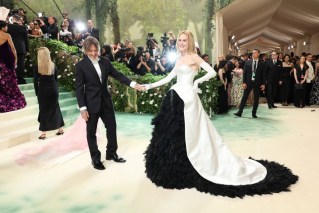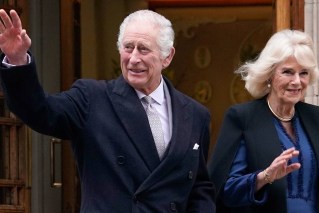Whole lotta shakin’: Elvis mania returns to Parkes
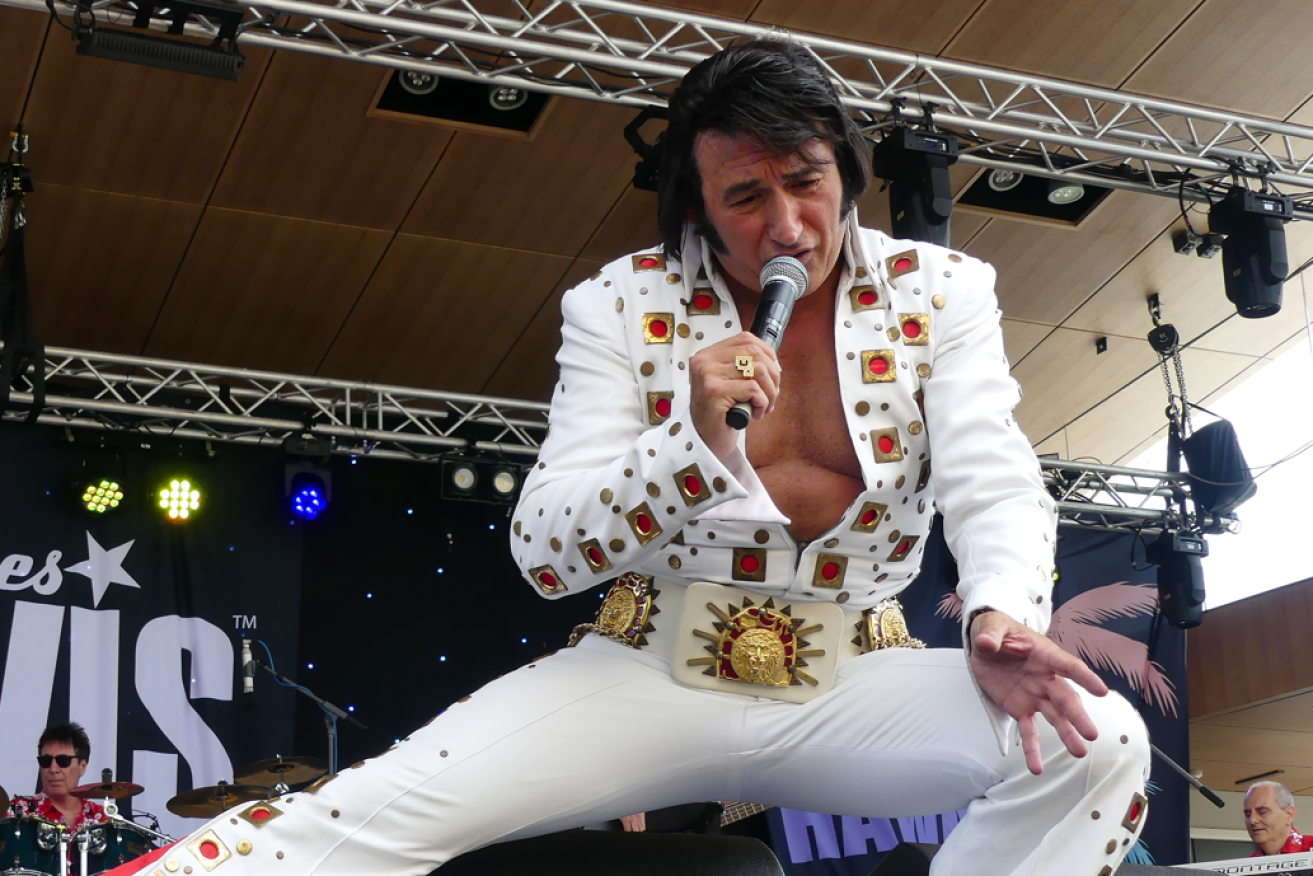
Elvis tribute artist Paul Fenech whips up an adoring crowd in Parkes.
While many Australians hit the beach over summer, thousands of rock and roll fans are strapping on their blue suede shoes for the 31st Parkes Elvis Festival.
Lonnie Lee was destined to spend his life on a sheep farm, following in the tradition of his father and grandfather.
That is until Elvis Presley intervened.
Lee was crowned “Australia’s own Elvis Presley” in a competition at
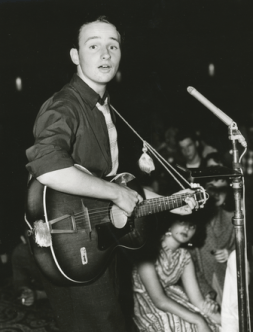
Love me tender is what girls whispered to Lonnie Lee at the start of his career.
Sydney’s Trocadero club in 1957, becoming one of the nation’s first tribute acts.
“I sang three songs and the audience went absolutely bananas,” Lee recalls.
That early success led to a life of touring and performing with his rockabilly band, far from the dust and heat on the family property at Rowena, in northern NSW.
The band appeared on Six O’Clock Rock in the early era of television, giving Lee a taste of Elvis mania.
“On tour the girls would write their names and ‘We love you, Lonnie’ and their phone numbers in lipstick all over the car,” Lee says.
“It sounds wonderful, but it ruined the car.”
Lee, now 83, is set to relive those halcyon days when he returns to perform at the Parkes Elvis Festival, in central western NSW, from January 10.
The five-day festival, complete with tribute concerts, dress-up competitions, a parade, and a hound dog pet show, is marking its 31st year with a Jailhouse Rock theme.
About 25,000 visitors are expected to travel to the rural town, some on the Elvis Express train from Sydney, the Regional Hound Dog Express plane or maybe in a Long Black Limousine.
Bit different from Kentucky rain
The Elvis fans, who sweat through the dry summer heat in wigs, polyester jumpsuits and rhinestones, could bring in more than $13 million to the town of 10,000.
It was the unlikely setting that first drew John Connell to Parkes in the early days of the festival, along with his friend and fellow geography professor Chris Gibson.
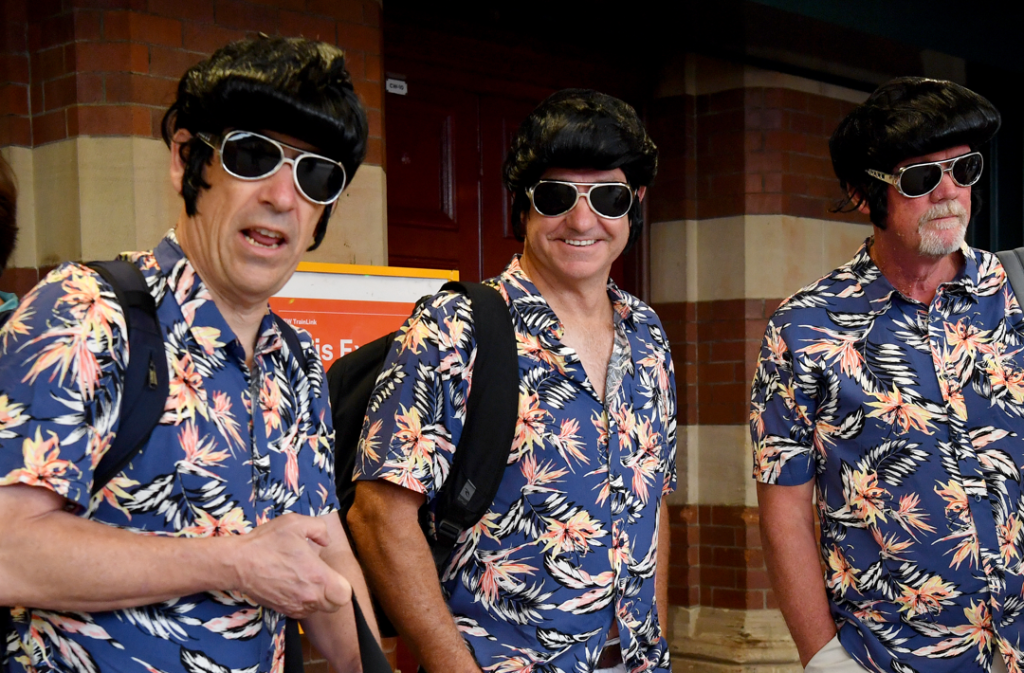
All dressed and somewhere to go: Fans wait to board the Elvis Express. Photo: AAP
“We got into it more because it was this weird festival than because it was Elvis,” Professor Connell says.
“It looked like a small country town, the long main high street, the shops that close on Saturday afternoons.
“The festival was a bit like that as well, a bit more like a country women’s cake sale.”
But the academics returned to the festival for years to witness its evolution from an off-beat community fete to a slick event with international recognition.
Their book Outback Elvis explores how the festival helped Parkes turn its fortunes around after the peak of the wheat and sheep booms.
The town was right to look to the king for hope, Prof Connell says.
“They hit on the right person … Elvis lends himself to a degree of fanaticism and creativity.
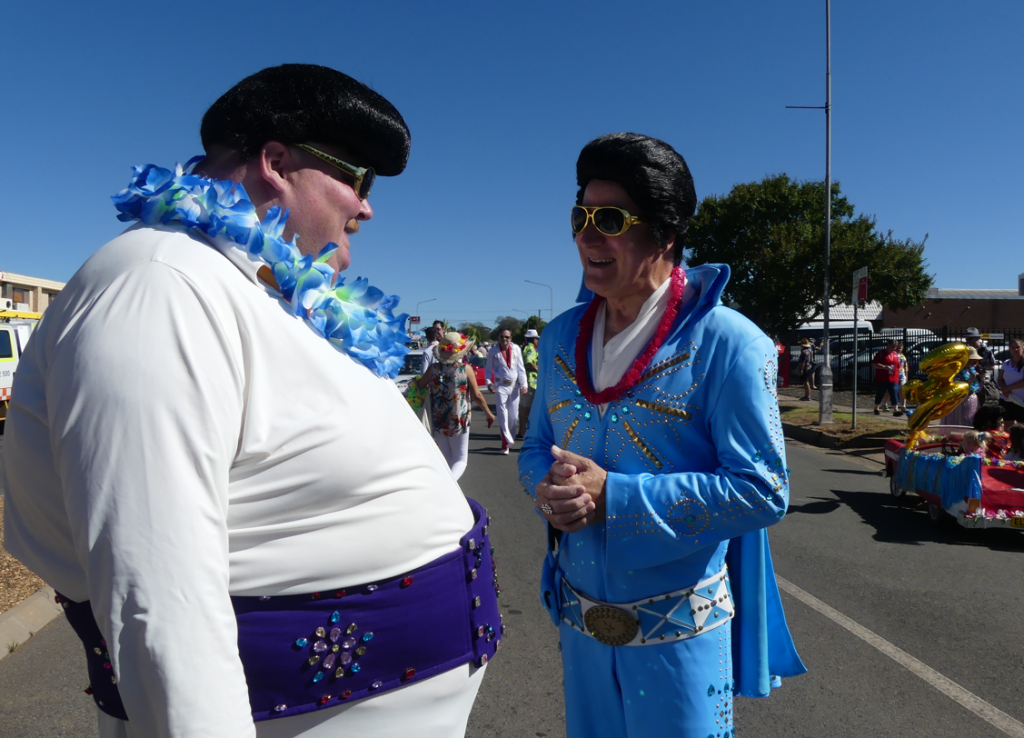
Elvis devotees come in all shapes and sizes. Photo: AAP
“In many ways, it was lucky: they had the right people, in a strange place at the right time.”
In an era marked by bushfires, floods and rural decline, the festival has boosted just about every business in town.
“The vets were producing costumes for the smaller dogs, the tattoo parlours were booming, the hotels were booked out years in advance,” Prof Connell says.
“The only people who didn’t (benefit) were the undertakers.”
That’s not the case this year.
Festival director Joel Ulbricht says even the undertakers have a look-in, having produced some of the Hall of Fame plaques.
There is nothing quite like the Elvis festival, Mr Ulbricht says.
“There are two particular audiences that come to Elvis Festival: your first is your die-hard fans of Elvis.
“The second side of it is the novelty of 25,000 Elvis impersonators, people who are madly in love with music, Elvis himself and the legacy he has left.”
—AAP

